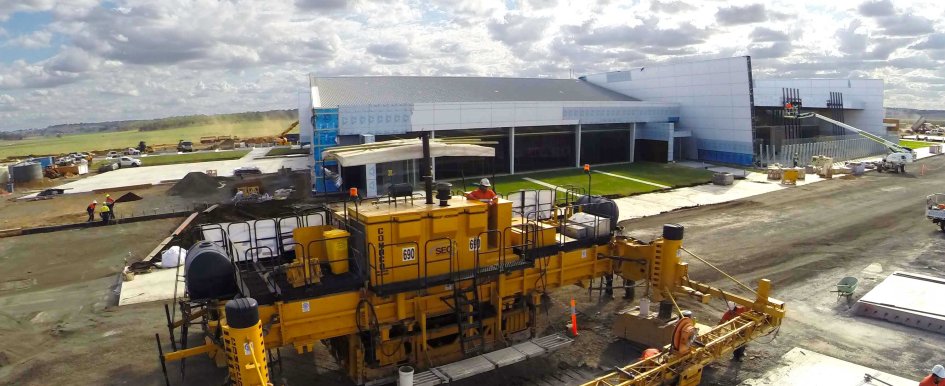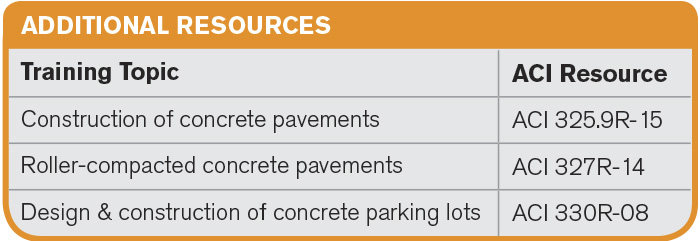
Quality construction depends, in large measure, on the skill of crews involved in the project process and the quality of materials used. Construction business owners are continually seeking to make operations more efficient and more competitive.
Investing in training and developing programs for current and new workers is crucial to ensure that your business is successful. Training provides employees with the knowledge they need to finish the job, using methods that ultimately result in a job well done and a satisfied owner.
Concrete pavements make up an integral part of the national primary and secondary highway system, farm-to-market road system, city streets, parking lots and airport runways. Historically, concrete pavements have exhibited a higher initial cost than asphalt pavements, but recent construction and market forces have narrowed that gap.
Moreover, the longer service life and lower maintenance costs associated with concrete make it a very attractive, sustainable paving material. Regardless of the type of equipment used, the success of your project depends on the skill set of your entire crew.
Driven by cost, need and limited resources, the technology for concrete removal and reuse is rapidly advancing. Partial removal of critical structural components for repair, rather than replacement, geographical constraints, access to structures planned for removal, environmental regulations and worker and structure safety will continue to affect the life span of developing methods and equipment.
With safety as a foremost consideration, thorough planning is essential when engaged in a removal project. The scope and type of concrete to be removed should always be evaluated and examined in detail to determine the most advantageous system(s).
Concrete parking lots have many similarities to other types of concrete pavement. However, parking lots differ from other pavements in that most of the area is intended for storage of vehicles and other goods, rather than for continuous movement of vehicles.

Load-bearing capacity, drainage, crack control, life-cycle cost, constructability and maintainability are other characteristics that are important in the design and construction of concrete pavements, including parking lots.
It’s important to provide your team with the right guidelines for on-site investigation, thickness determination, durability considerations, paving operations and quality-assurance procedures during construction.
The sustainable construction benefits of concrete are considerable, especially when compared with other pavement materials. Concrete parking lots typically have service lives of 30 years or more, requiring no additional use of aggregates and other nonrenewable material resources throughout the period.
In addition to opportunities for the use of sustainable concrete component materials, such as recycled aggregates and other supplementary cementitious materials derived from industrial byproducts, concrete’s light-colored surface helps reduce reflected solar radiation, and its higher reflectivity can reduce illumination requirements. Lower resulting energy requirements are realized throughout the facility’s life cycle. Pervious concrete may be useful in reducing storm water runoff from the site.
To find training resources for your company, look to organizations that focus on your area of the industry. For example, The American Concrete Institute (ACI) offers numerous certifications, training programs, workbooks, free, online learning presentations and technical resources specifically designed for concrete construction employees. The organization offers online access to a wide range of concrete topics options, including webinars, online and on-demand classes, certificate programs and free, online education presentations, providing guidance and best practices to concrete contractors and their employees.
These resources provide industry professionals with indispensable information. Topics include concrete fundamentals, slabs-on-ground and decorative concrete flatwork. ACI also offers 21 certification programs designed to form a minimum qualification for personnel employed within the concrete construction industry.



